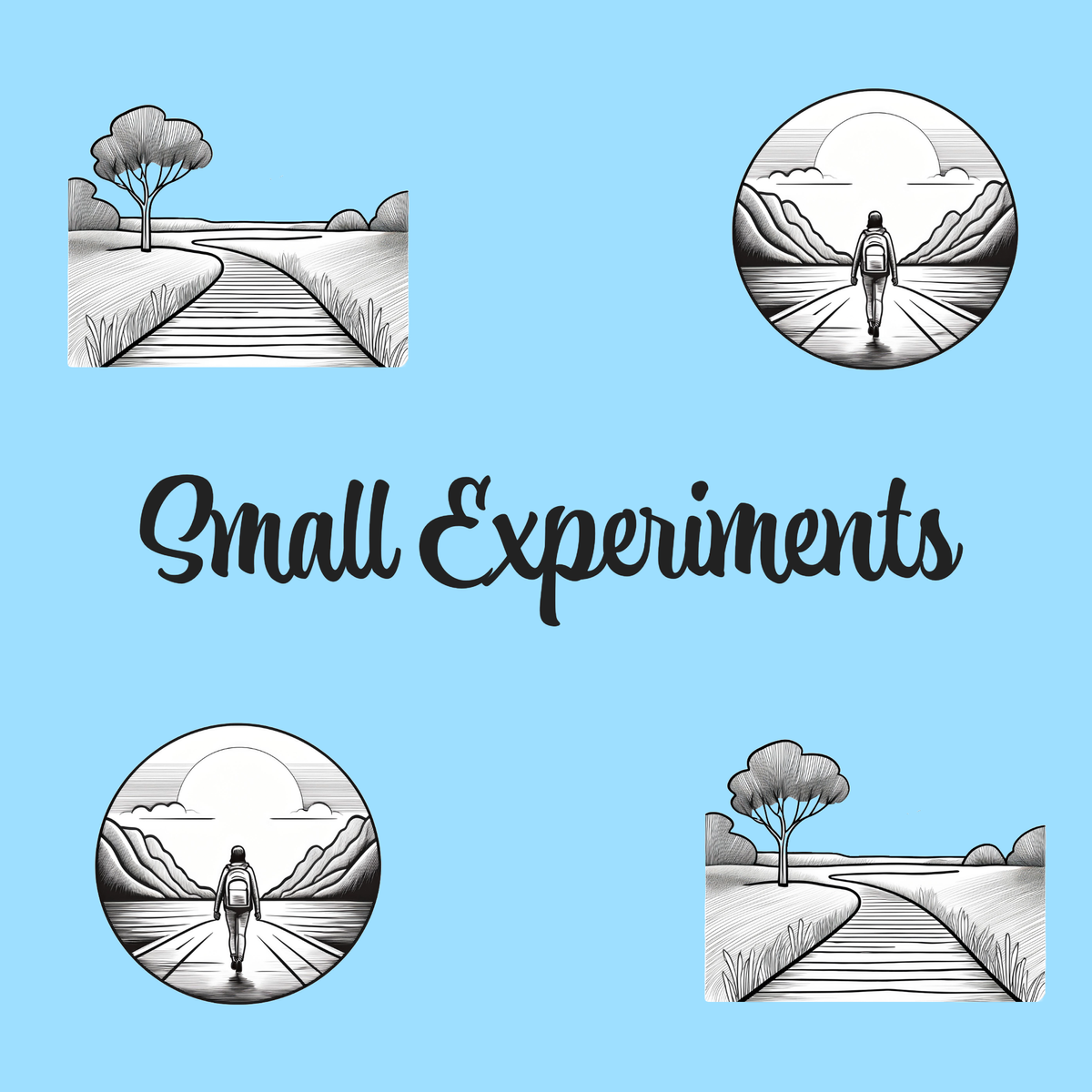Small Experiments, Big Possibilities: A Fresh Start for 2025

A very Happy New Year to you all!
I am very pleased to be sending out the first newsletter of 2025.
This year, these newsletters will take a new direction, inspired by a friend who reminded me of the power of sharing personal journeys alongside practical advice.
So here goes;
At the end of 2024, my family and I took the big decision to close our company. This was something that had been on our minds for quite some time, as the model was no longer suitable for the market we were in and attempts to pivot the business had not worked out as we had planned.
This decision has set me on the “Pathless Path”, coining the term used by Paul Millerd, as I explore what comes next.
I am currently allowing myself this time to use small experiments to trial different areas of interest that could have future career potential.
What’s one thing you’ve been curious about but hesitant to try? Let’s explore how a small experiment could help.
What Are Small Experiments?
Small experiments are manageable trials that provide an opportunity to explore new ideas with minimal risk and commitment. This concept is particularly useful for anyone looking to explore something new, or make a change to their routine, without the concern of committing long-term.
Why Start With Small Experiments?
For me, small experiments have been invaluable in reducing the pressure to commit too soon. They offer freedom to explore, learn, and adapt. Here’s why they might work for you too:
- Low Risk: Small experiments should reduce the risk around trying something new, such as reducing long-term commitment.
- Learn Quickly: When you run small experiments, there is an impetus on generating fast feedback, which aids with learning quickly to process decisions.
- Build Confidence: Without the pressure of long-term commitment, you can find the freedom to generate confidence in the idea being trialled.
- Encourage Iteration: It is a natural part of the experimentation process that your project may evolve over time and this is often a positive.
Running Your Small Experiments
Utilising the below steps on running a small experiment, brought me to further exploration of my writing. I found these steps a great way to gain clarity around my experiment:
- Define the Scope
- Identify a problem or opportunity you would like to explore.
- Define a clear and manageable scope for your experiment, outlining what you hope to achieve and how you will measure success.
- Set a Timeline
- Consider how long you will need to start seeing results and/or patterns, as well as a point that you would hope to know whether this experiment is something to continue in a longer-term capacity.
- Track Results
- Ensure you keep a log of your results, such as a daily check that a new habit has been completed or missed, or a financial figure, such as revenue, costs and/or profitability.
- Reflect and Evaluate
- Reflect and evaluate throughout the experiment, whilst completing a more thorough review at the end of the set timeline.
- Take the time to consider whether the objective was met and how this made you feel. Ask the question of what worked and what didn’t? Are there elements to continue, modify or remove?
Timescales For Small Experiments
There is no set timeframe that you have to stick to, but a good guide is:
- Short-Term Experiments (1-2 weeks): Test a new habit or trial a productivity technique.
- Medium-Term Experiments (1-3 months): Explore a new skill or lifestyle change, such as setting a fitness goal.
- Long-Term Experiment (3-6 months): Commit to a significant new project or a skill that requires greater learning time, such as starting a side hustle or learning a new language.
If you are unsure of where your experiment fits, look to ask the questions below:
- How quickly will I be able to see results and/or patterns?
- Over what period of time will this experiment be sustainable?
Let's Experiment
In my current journey, I have been using small experiments to identify opportunities that can be explored along my current pathway. This has removed some of the pressure around committing to my next step too soon.
The beauty of small experiments is that they enable flexibility and freedom to explore the items that we may be interested in, but need to know more before full commitment.
Do you have an idea, project or opportunity where running a small experiment would be of benefit? If you do, we would love to hear from you!
Did you enjoy what you read? Don’t miss out on weekly tips like these - subscribe now to stay on top of your personal growth journey.
